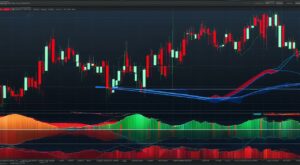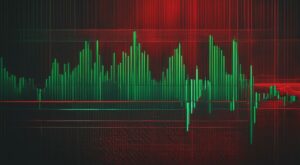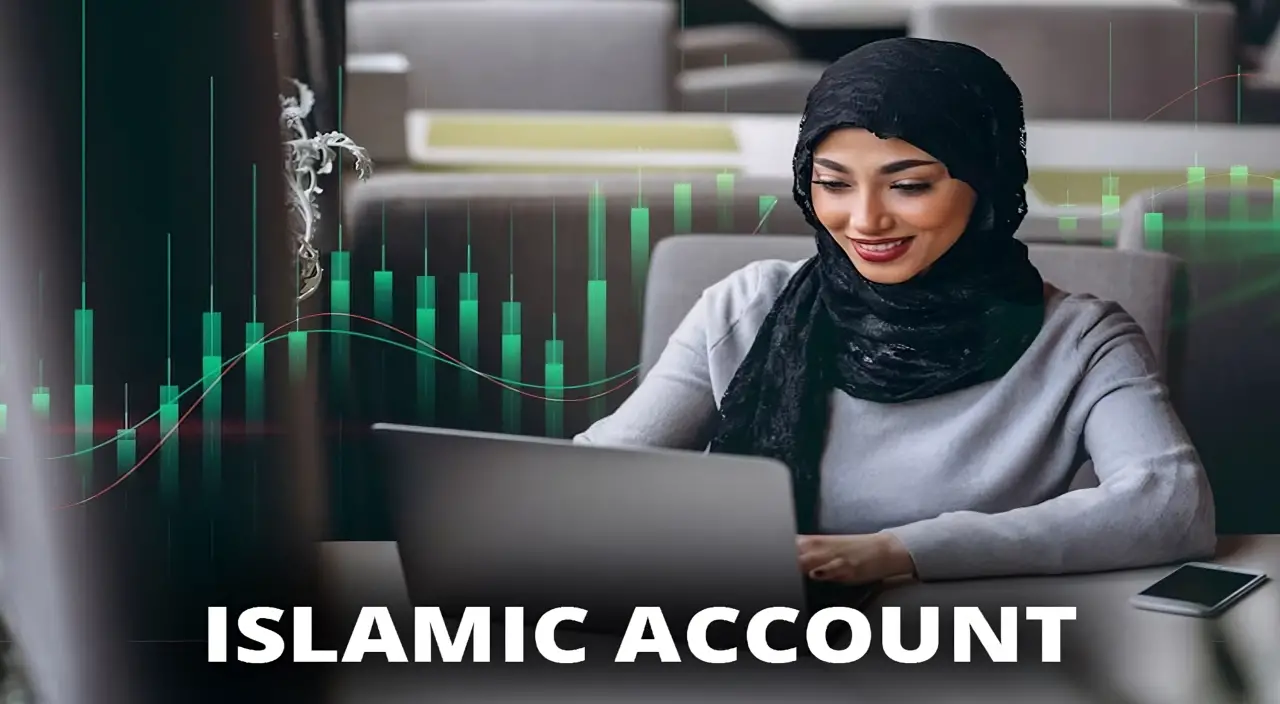Your cart is currently empty!
What is Islamic Finance and Forex Leverage?

Affiliate Disclaimer: This post may contain affiliate link or links
Shifting global economic dynamics and the inclusion of diverse cultural and religious nuances make the language of finance much more intricate.
What is Islamic finance and forex leverage? Islamic finance blends finance with Islamic principles, promoting ethical and interest-free transactions. Forex Leverage amplifies trading potential by borrowing funds.
Contents
Islamic Finance and Forex Leverage
Among these advancements, Islamic finance forex trading has stood out, drawing attention to its unique approach towards financial agreements and transactions.
As a budding trader looking to step into this realm, a comprehension of key concepts, such as halal forex trading and shariah compliant forex trading, is indispensable.
Dive into the dynamic intersection of Islamic finance and forex leverage, where traditional principles meet modern markets.
Uncover the unique challenges, ethical considerations, and strategic insights shaping this captivating financial landscape.

Understanding Halal Forex Trading
Halal Forex trading entails conforming to Islamic jurisprudence or ‘Shariah’guidelines in all financial operations. The guidelines prohibit interests (Riba), ambiguity (Gharar), and gambling (Maysir).
In contrast to conventional trading, Islamic Finance emphasizes ethical trading in Islam and shuns practices founded on speculation or prohibited transactions in Islam.
A trader needs to grasp the importance of avoiding interest in forex trading. Interest implies earning or paying an extra amount over transactions, which is strictly forbidden in Islam.
To cater to this requirement, swap-free forex accounts have been introduced.
These accounts avoid any swap or rollover interest on overnight positions, hence catering to avoiding any overnight fees for Islamic accounts.

Levelling with Leverage in Islamic Forex Trading
In Islamic Forex trading, leverage is a tool to optimize your trading capacity. The allowed leverage in Islamic forex trading is typically 1:1, keeping in compliance with Islamic laws of prohibiting interest or ‘Riba.
This means for every dollar in your account; you’re entitled to trade one dollar in currency. Hence, you’re merely using your own money, ensuring no borrowings and associated interest obligations are involved.
With the 1:1 leverage rule in Islamic forex trading, every dollar you have in your account equals one dollar that you can trade in currency.
This is particularly important in aligning forex trading with the principles of Islamic finance, where the concept of riba (interest) is strongly prohibited.
Therefore, with this set-up, you’re essentially utilizing your funds, eliminating the requirement for borrowing additional funds on interest.
This negates the occurrence of usury, cementing the Shariah-compliant status of such trading transactions.
Looking at it from an operational perspective, it significantly lowers your risk level in trading transactions.
Since you only use funds that you have, the chances of losing more than you planned are drastically reduced.
Hence, Islamic Forex trading under these principles provides the trader with a balanced combination of ethical compliance and strategic financial management.
This is a true testament to the comprehensive nature of Islamic finance, enabling a secure, trustworthy, and halal trading avenue.

Understanding Islamic Contracts in Forex Trading
Islamic Forex trading leverages three major types of contracts, namely Mudharabah, Murabaha, and Wakala.
The Mudharabah contract in Forex trading is essentially a profit-sharing agreement. The investor provides capital to the entrepreneur, who then trades and shares profits at a pre-agreed rate.
This contract eliminates the concept of interest and establishes a fair, ethical trading pathway.
The Murabaha contract in Forex trading allows traders to purchase a commodity and sell it at a higher price to another party, the difference in the prices is the profit.
Murabaha encourages transparency, which is a key pillar of Islamic finance.
The Wakala contract in Forex trading involves an agent performing a task on behalf of a principal for an agreed fee.
This contract eliminates any unfair gain and ensures the financial transaction is Shariah compliant.

Muslim Forex Traders Perspective
While there are varied perceptions among Muslim Forex traders, a common thread is adhering to Islamic laws.
A Forex trading fatwa, which is a legal opinion or ruling issued by an Islamic scholar, guides traders on the non-negotiables and debatable aspects of Forex trading.
A Forex trading fatwa plays a crucial role in guiding traders, especially in making decisions that align with Islamic law.
This legal opinion or ruling, provided by an Islamic scholar well-versed in Shariah law, marks a roadmap for halal forex trading.
It not only explicates on the non-negotiable aspects like prohibition of interest (Riba) and the obligation to avoid ambiguity (Gharar), but also critically comments on issues with room for debate.
Matters such as the use of leverage, day trading versus long-term investing, and even the permissibility of certain derivatives come under its purview.
Essentially, the fatwa bridges the gap between religious ethics and modern financial dynamics, making forex trading accessible to Muslim traders.
It prescribes pertinent recommendations that help traders navigate grey areas and negotiate dilemmas while ensuring compliance.
This underlines the importance of the fatwa in Islamic forex trading, serving as a beacon of guidance for traders seeking to follow ethical and shariah-compliant practices.

Currency Trading in Islam
Forex trading involves the simultaneous buying and selling of different currency pairs. However, not all currency pairs are allowed in Islamic Forex.
Traders should carefully review the AAOIFI standards and consider obtaining a shariah compliance certification for clear insights and necessary upskilling.
Moreover, currency futures, currency options, currency swaps, and currency pairs in Islam are approaches commonly used to enhance the profitability of Forex trading.
However, the contracts involved should conform to the Shariah law to maintain their Halal status.
Extended Trading Analysis in Islam
Islam permits various trading styles like day trading, position trading, along with technical and fundamental analysis in Forex Islam.
However, each style needs to abide by ethical norms and be void of interest, speculation, and uncertainty.
Various financial commodities like gold, silver, stocks, indices, and cryptocurrencies in Islam can be traded, considering they are free of ambiguity and interest components.
As technology evolves, automated trading in Islam, copy trading, and PAMM accounts in Islam have gained momentum.
These can be deployed in Islamic managed accounts, enabling efficient trading and profit optimization.

Ethics and Transparency in Islamic Finance
Islamic Finance upholds strong ethical obligations and transparency. Concepts like Gharar (uncertainty), Maysir (gambling), and Riba (Interest) are strictly forbidden as they contravene these obligations.
Adherence to these principles, along with the AAOIFI guidelines, is critical to maintaining the halal status of Forex trading.
Essentially, these guidelines provide a roadmap for ethical and fair trading, keeping in line with Shariah principles.
Such adherence ensures that all transactions are free from interest (Riba), uncertainty (Gharar), and gambling-like speculation (Maysir), which are strictly prohibited in Islam.
Along with the meticulous structuring of transactions, AAOIFI guidelines also encourage transparency and stringent audit processes, assuring traders that their transactions are both legally and ethically sound.
A commitment to these principles is therefore an affirmation of maintaining the Halal status of your Forex trades.

Choosing the Right Platform for Islamic Forex Trading
A trader needs to look beyond the regular technical attributes when choosing a Forex trading platform.
You need a platform that provides Islamic Accounts in UK or Europe, adheres to AAOIFI standards, and commits to clear guidelines on ethical obligations in Islamic finance.
When selecting a trading platform, it’s essential for a trader to find one that offers Islamic accounts, particularly in regions like the UK and Europe, where the demand for Shariah-compliant services is rapidly growing.
These accounts ensure adherence to Islamic principles, being interest-free and devoid of hidden charges, aligning with the avoidance of Riba.
The table below shows list of top forex brokers with islamic account or that accept swap free trading for all traders.
| Broker NameCountryIslamic Account TypeMinimum Deposit | |||
|---|---|---|---|
| eToro | Cyprus/UK | Swap-free | $200 |
| XM | Australia | Islamic Account | $5 |
| FBS | Belize | Swap-free Account | $1 |
| HotForex | St. Vincent & The Grenadines | Islamic Account | $5 |
| IC Markets | Australia | Muslim-friendly trading | $200 |
| Pepperstone | Australia | Swap-free Account | $200 |
| Plus500 | UK | Islamic Account | $100 |
| AvaTrade | Ireland | Swap-free Account | $100 |
| FP Markets | Australia | Islamic Account | $100 |
| OctaFX | St. Vincent & The Grenadines | Swap-Free Account | $5 |
Additionally, the platform must commit to the Accounting and Auditing Organization for Islamic Financial Institutions (AAOIFI) standards.
These guidelines provide a sound structural framework for transactions, ensuring compliance with Islamic principles.
Commitment to AAOIFI standards translates to the platform’s commitment to transparency, reliability, and ethical responsibility.
Furthermore, the platform must actively engage in reinforcing ethical obligations of Islamic finance.
This involves advocating for business practices that avoid prohibited transactions, educating users, and taking steps to eliminate gharar and maysir.
The right platform hence becomes a facilitator for traders, affirming their goal for Shariah-compliant, ethical trading.

Conclusion
Embarking on the journey of Islamic Forex trading requires an understanding of the unique terminologies and concepts of this trade.
However, a grasp of Islamic contracts, select currency pairs, allowed leverage, and the ethics of trade can make your journey smoother.
This newfound comprehension will not only help you step into the world of Islamic finance but also explore it with an enlightened perspective.
Other related articles
- Trade Report Indicator: Indicator for Forex Traders
- Trend Profiteer Trading System: A Trader’s Must Have
- Quantum Trend Sniper Indicator MT4: Free Download
- German Sniper Indicator: Unveiling its Power
- Mastering MACD Intraday Trend | Indicator Free Download
- Crazy Accurate 5-Days Breakout Strategy: Unlock Success

Joseph Benson, I have been trading forex for more than 15 years now and I am still trading actively, a content writer, an Architect also SEO expert, learn how to trade easily with me.










Leave a Reply